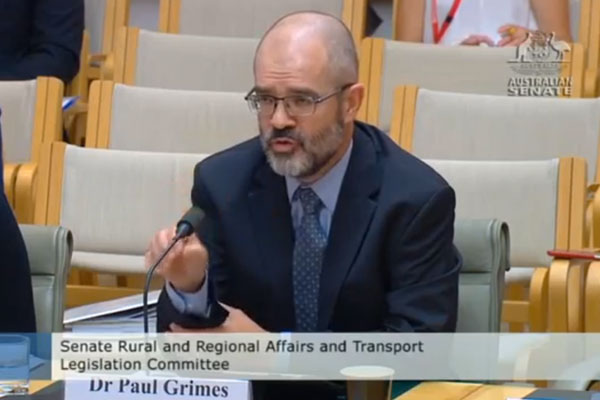Nearly two weeks ago, Australian’s began to contract Hepatitis A. This diagnosis would have been horrifying for unsuspecting people as they learnt they had contracted the infection from bags of imported Nanna’s frozen berries. Across the country worried consumers started checking in with the GP. There’s a sense of worry that shouldn’t come with eating what has become an increasing popular food.
Hepatitis A is not just a tummy bug, nor food poisoning, nor a sense of queasiness from eating something a little off. Hepatitis A is an acute (but preventable) infection of the liver, and symptoms can be debilitating.
This unfortunate set of circumstances that has left us questioning the safety of imported foods as a whole has coincided with additional senate estimates in Federal Parliament. This means that Senators were able to (almost immediately) quiz the departmental and regulatory bodies that are responsible for food safety and are expected by the public to prevent contaminated products arriving in Australia.

The outcomes of evidence provided have been quite astounding. These issues have been here all along, but it has taken a major case of contamination for it to come under proper scrutiny.
Here are a few points that came out of questions to the Department of Health, the Department of Agriculture and Food Standards Australia and New Zealand (FSANZ) over the last couple of days.
Our regulatory body knew about Hep A infections from berries last September overseas but did not increase scrutiny measures.
The regulatory body that is supposed to ensure imported products are safe seems to work around a sluggishly reactive model, with little indication that – despite reported cases a year ago in Europe and Ireland – there was any infrastructure in place to protect us from a potential incident in Australia.
We cannot quickly raise the risk levels of berries coming from China, even though people are getting Hep A.
Biosecurity in Australia is mired in bureaucracy. The Department of Agriculture are in control of determining risk levels on particular products, but have to wait for advice from FSANZ. Although Australians are continuing to be infected with a serious infection, FSANZ conceded that it will take “some weeks” to undertake a risk assessment.
As it stands at the moment, imported berries are still considered ‘low risk’ and the small amount of testing done doesn’t include microbial testing.
Our regulatory body are conducting a ‘risk assessment’ but aren’t visiting the factories where contamination occurred.
FSANZ does not believe visiting the processing centres is necessary when identifying risk. This is a huge concern.
There are 29 other importers of berries; none of them will receive an increase in surveillance.
Consumers are purchasing imported berries from 29 other producers under the same regulatory processes that let Hepatitis A slip through the cracks. We are still working from a system that has failed us in the last few weeks.
It is clear biosecurity in Australia has hit a major crossroad.
A number of things must happen to shake up how we regulate food coming into our country; we need to look at the effectiveness of the regulatory process; we need to give power to consumers, who deserve to know where their products come from.
The Department of Agriculture should be able to increase the level of testing while risk assessment is being carried out. Risk management in producing countries should be included in decision making at some point along the process and microbial testing should be carried out as part of standard testing.
Despite indications by the Prime Minster that the Coalition are moving to make amendments to improve country of origin labelling, there is a bill sitting in the Senate, that, if passed, would provide immediate improvements in transparency for consumers.
The bill was introduced by my colleague, Australian Greens Leader, Senator Christine Milne. The Country of Origin food labelling Bill currently before Parliament is the outcome of years of consultation with the industry. Cross party support for this bill would almost immediately increase trust between the producer and the consumer.
There are actions that can improve this situation and reassure consumers, but we must move faster. One thing is certain, berries shouldn’t be dangerous.
* Senator Rachel Siewert is the Australian Greens spokesperson for Agriculture.
Donate To New Matilda
New Matilda is a small, independent media outlet. We survive through reader contributions, and never losing a lawsuit. If you got something from this article, giving something back helps us to continue speaking truth to power. Every little bit counts.



